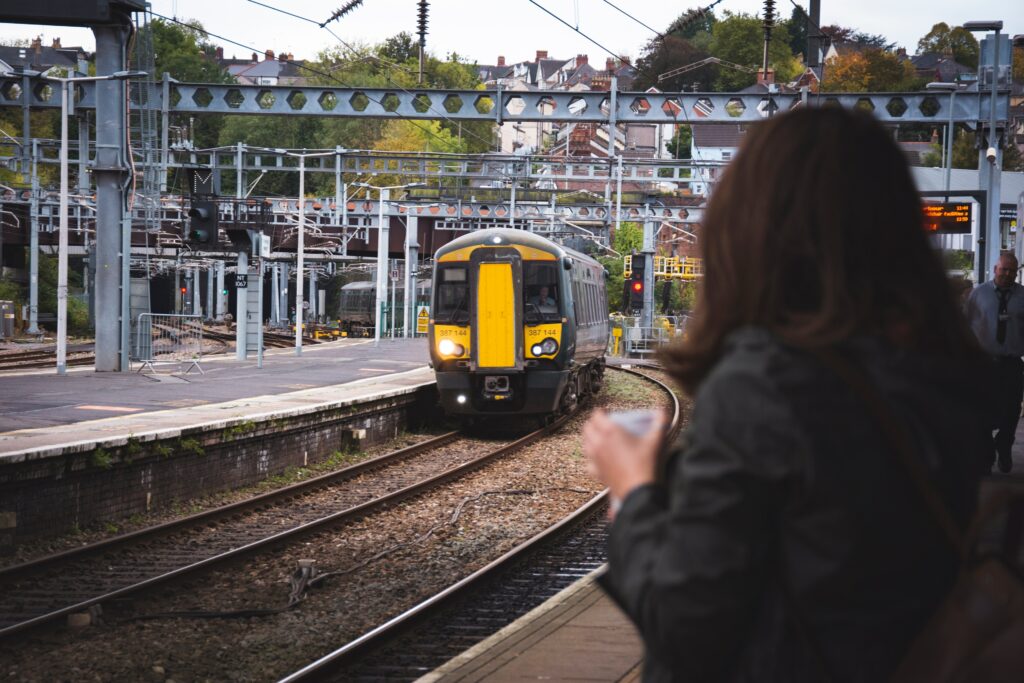Natasha Asghar MS questions the Welsh Government’s track record on transport and asks whether it serves Wales’ best interests.
We don’t know yet who will be the next Prime Minister of the United Kingdom, but I was delighted that both candidates at the Cardiff hustings are clearly far more ambitious for Wales than the devolved government in Cardiff Bay.
We had Rishi Sunak declaring he will be an “activist” PM in Wales, Liz Truss saying she would build the M4 relief road, and both deploring Labour’s ban on road building.
Putting aside whether they would have the power to do everything they wanted to do in Wales, they were right to call out the utterly bizarre road review now in its second year.
The decision not to build roads in Wales is anti-worker and anti-jobs.
Whenever I hear the First Minister talk about Wales being a proud, confident, and modern nation, I cannot help but feel that it could be so much more so if he wasn’t forcing through such a dogmatic agenda based on the desires of well-off city dwellers with little understanding of how a country functions.
The decision not to build roads in Wales is anti-worker and anti-jobs. It reminds me of those who say governments shouldn’t aim for economic growth.
Roads are an essential part of infrastructure. It means connectivity between businesses, between homes. This cuts distances between economic hotspots, giving entrepreneurs confidence to invest in certain areas. The lack of suitable infrastructure is one of the concerns of residents in areas where new housing is proposed. It’s not just wanted, but needed.
It is far from being the only reason, but cities become hotspots because of the connectivity provided between and within them. Yes, by train, but by road too – for bikes and buses, as well as cars.
Levelling up is supposed to mean spreading prosperity and opportunity for people. But that means doing so for the wealth creators too. This requires giving them a reason to invest. To put down roots outside of established markets.
This requires packages on tax, housing, and more that I will let other colleagues explain but, as a shadow minister for the portfolio, I must stick up for the role of transport.
Under Labour’s plans, all this would be made far more difficult as the party makes positive noises towards congestion charges, workplace parking levies, and tolls on the A55 going through North Wales. They are not credible custodians of our transport networks nor of our economy.
Whoever becomes the next Prime Minister should directly involve themselves in transport infrastructure in Wales instead of handing over that money to the Labour Government.
Syniadau uchelgeisiol, awdurdodol a mentrus.
Ymunwch â ni i gyfrannu at wneud Cymru gwell.
The latter’s record demonstrates it will not use it to make better transport links – it would probably be plundered to do something that was not even in its manifesto, like universal basic income, implementing rent controls, or creating 36 new politicians in Cardiff Bay.
The anti-car agenda of the Labour Government – and its councils across Wales – may make sense as a means of tackling climate change if a sixth former was a minister but we should expect much better, much smarter from our policymakers.
Just look at the top-down, blanket decision to make all of Wales a 20mph zone. Whilst my party is of the belief that councils can already decide where to do this themselves, following the lead of residents who mainly want them around schools, the Welsh Government think its better to overrule them despite public hostility.
Indeed, people across Wales feel they were not able to have a proper say in this decision – unsurprisingly so given that opposition to the move in the public consultation was ignored.
Nevermind that this makes journeys slower so people spend more time commuting than at work or with their families. Nevermind the impact this will have on making bus journeys even longer. Nevermind that it will barely be enforceable, especially in rural areas. Nevermind that those delivery drivers working on commission won’t be able to complete as many jobs as before.
Ministers have already admitted that this policy will come at an astonishing cost of £4.5bn to the Welsh economy, proving they are doing everything possible to stunt growth in Wales.
Meanwhile, the failure to build an M4 relief road – but not before wasting £150m on a report Mark Drakeford ignored – results in severe congestion on a near daily basis. The project was not only a chance to solve existing problems, but a move to future-proof our infrastructure through our calls to emulate Sweden with charging strips on roads where electric vehicles are charged as they drive.
So, not only is Labour slowing Wales down economically, but physically too.
Only by leaving behind this dogma, this outdated and simplistic thinking, and believing in Wales’ potential can we focus on making sure Wales has a public transport system fit for the 21st century.
All articles published on the welsh agenda are subject to IWA’s disclaimer.





